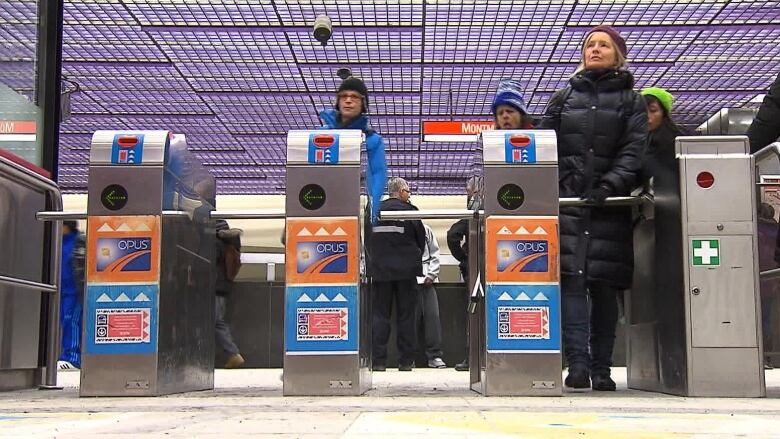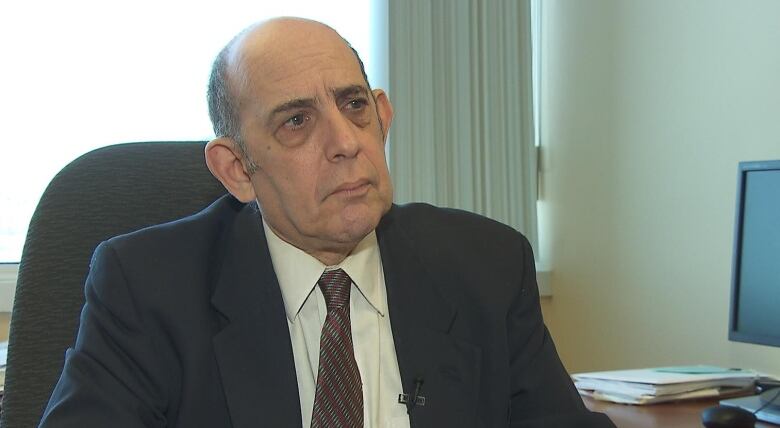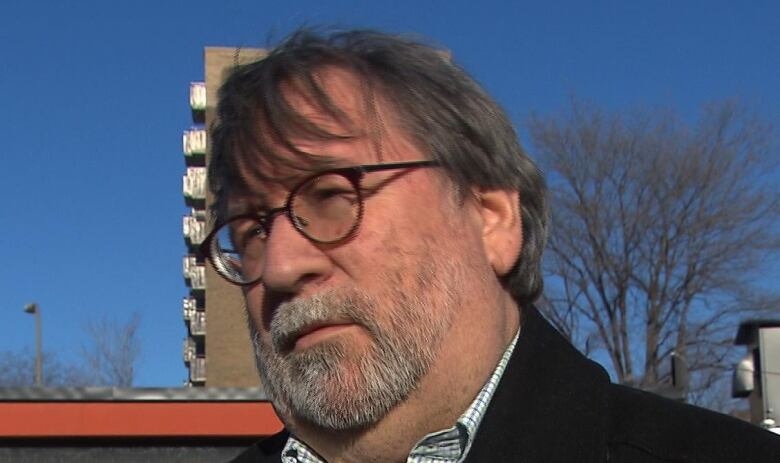STM handing out more fines for fare evasion
Montreal's transit agency has 172 inspectors who monitor the metro and bus lines

The STM has been handing out fines at a record-setting pace over the past year, according to information obtained by CBC Montreal Investigates.
The transit agency says it'sstill tallying up the numbers, but for the first seven months of 2015, inspectors handed out:
- 5,133 fines for a total of $744,900 (Jan. 1 - July 31, 2015).
At that pace, the total could reachabout9,000 fines for the year.The finesare largely for fare evasion, but also include using someone else's reduced fare pass or not keeping proof of purchase.
In the two previous years, the STM handed out:
- 4,633 fines for a total of $673,160 (2014) .
- 7,066 fines for a total of $1,017,019 (2013).
The 2014 fines dropped off due to what the STM calledalack of equipment (inspectorsuse hand-held machines to check the tickets).
Regular checks
Ask around and most people have been stopped by STM inspectors to check if they paid their fare.

"I don't think it's particularly controversial that a transit agency verifies its riders," said Marvin Rotrand, vice-chair of the STM board.
"The norm at the STM is about threeper cent of the trips taken in the STM get verified by the inspectors."
Riders are checked more frequently in some European cities, but Rotrand argues the STM's approach, while less intrusive, does its job.
"It convinces some people, 'maybe I shouldn't take a risk and not pay my fare,'" said Rotrand, adding that,unfortunately, some riders do try to defraud the system.
There are about 172 inspectors who check all of the metro and bus lines.
Their uniforms are visibly identifiable and inspectors use hand-held machines to check riders passes to see if they have paid or not.
Part of the inspectors' job is to make sure there isn't a loss of revenue that should be going into services.
Rotrand said the money people pay for their fares goes toward operating costs and other little extras such as bus shelters or customer service agents.
Before OPUS
Prior to the introduction of the OPUS card in 2008, it was much harder to check fares.
The system was paper-based and people didn't always keep their ticket.
Before OPUS, fraud was estimated to be between $10 to $20 million dollars a year.
"We didn't really know, said Rotrand. "That was our estimate based on what we thought after our accountants and security people spoke together."
The OPUS card made it easier and faster for people to buy transit fares and easier for inspectors to check.
But Rotrand won't say how much of a dent the STM has made when it comes to fraud.
"I won't," said Rotrand. "I will only say that we think we have saved a substantial amount of money."
Lack of transparency
CBC Montreal Investigates repeatedly asked the STM for up-to-date fraud numbers, even an estimate, but were refused.

"We don't want to have a fare increase higher than what is should be," said Francois Ppin, Transport 2000's chairman.
"So if they don't get all their revenues, of course there's a lack of money. It's very important to get all the pennies you can."
That'swhy he's surprised the STM doesn't know or won't make public its fraud numbers.
"If I was part of STM management, that's the kind of data I'd like to know," said Ppin.
"If I have in my budget $300 million of revenue, I'd be sure I have that by making sure 100 per cent of the fares are in the box."
Ppin admits it could take a several-months long study to pin down how big of a problem fare evasion is, but he says it's worth it.
Otherwise,he points out, the transit agency has no way of knowing if the measures it has in place are working or if transit users are getting their money's worth.












_(720p).jpg)


 OFFICIAL HD MUSIC VIDEO.jpg)
.jpg)



























































































